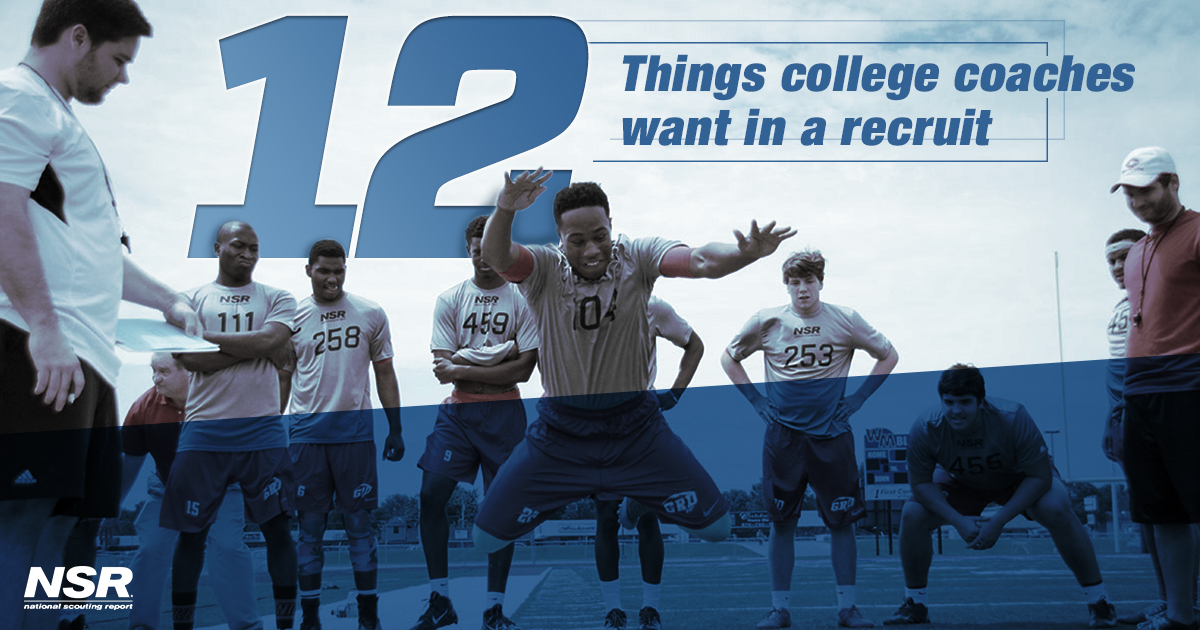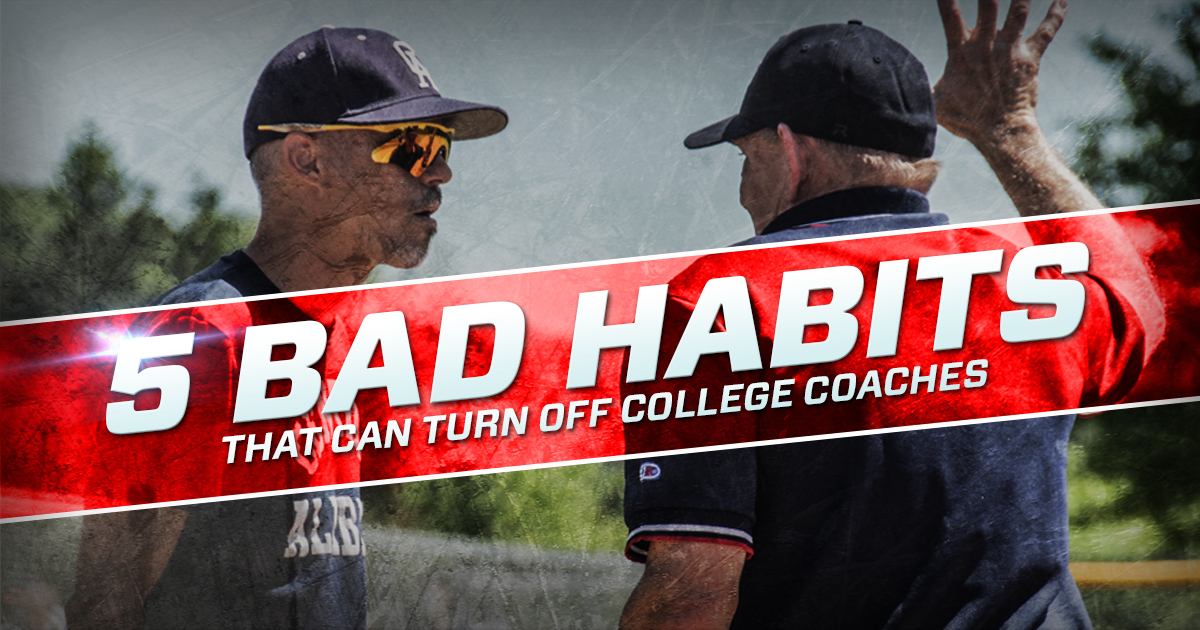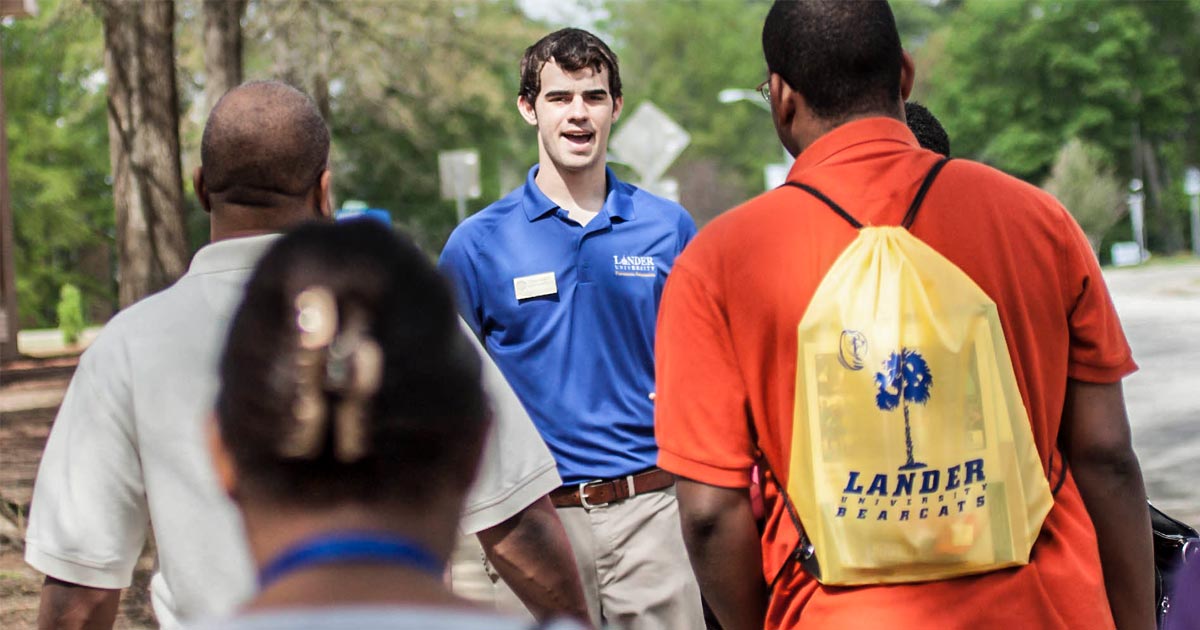
How to be a 5-Star recruit on social media
Everyone knows an athlete or two caught using social media the wrong way. Social media is a great thing, but it can be detrimental to an athlete’s career if not used correctly.
College coaches are very active on social media, talking about their team, wins, losses, etc. They are also on social media looking at what their current athletes and prospective athletes are doing. Today, “social media stalking” is a big part of the recruiting game. I know you just laughed out loud reading that because you can’t imagine a college coach doing that, but they do.
Coaches want to know how an athlete acts when they aren’t on the field, and there’s no better place to do that than through their social media interactions.
Don’t be scared by this thought either, because social media is a great avenue for you in the recruiting process.
I played collegiate athletics, and I can tell you with full certainty your social media presence matters. How you present yourself on social media, what your friends say about you, the things you like/retweet/reshare and whatever else, doesn’t go unnoticed. I know social media is your avenue to express yourself.
Trust me. I get it.
But if you’re serious about playing collegiate athletics I want to give you some of the advice and guidelines I ran into during my college career.
You represent something bigger than yourself.
You probably hear this from your current coaches already, but I would be giving you bad advice if I didn’t mention it as well. The moment you sign your national letter of intent or even commit to a program, you represent that university, the program, your coaches, teammates and everything else associated with that program.
College coaches want to make sure they are bringing people to their program that are quality additions. If you’re aren’t representing yourself in the right way, then how can they expect you to do that for their program? Reputation is important to college coaches.
Being positive on social media goes a long way.
One of the rules that my coach was adamant about was being positive. If I was worried about an exam, or tired, or struggling, I wasn’t allowed to post something about it. I couldn’t just tweet, “Someone cross your fingers for me during this exam #Notready,” that would be a negative post.
Instead, my teammates and I would have to post something positive- maybe something about our next competition. Doing this on social media makes your bad days better and trust me, at some point in your collegiate career you will have at least one.
Everything on your profile is from you.
Everything you like, retweet, react to and whatever else you can do these days on social media is YOUR voice. Yes, even if you didn’t write the post, you liked it, and that means the same thing.
I hate to be the bearer of bad news, but it’s important for you to know. Coaches, Athletic Directors, and Administrators all monitor (or have someone to monitor) your social media presence.
 These are just a few things that I experienced, or other friends of mine went through. Other universities may have different rules, and they may be more or less strict. It all depends on the coach.
These are just a few things that I experienced, or other friends of mine went through. Other universities may have different rules, and they may be more or less strict. It all depends on the coach.
But don’t think you can fix all of these issues by having private social media accounts because that can be a red flag to coaches sometimes too.
Again, I can’t say this for every coach or program, but if a coach can’t look at your stuff, then they probably are wondering, “What does this kid have to hide?” I am not encouraging anyone to make their accounts public, just showing a thought that crosses some coaches minds.
If you’re interested in a program, maybe you add the coaching staff or follow them yourself. This way coaches know you’re interested and can look at you as well. Plus, if you’re doing the right things on social media you want them to see that!
Social media is a great tool for athletes, but it can also cause problems if not used correctly. The golden rule, at least this is what I’ve always heard, is don’t post anything you wouldn’t say to your parents or grandparents.




